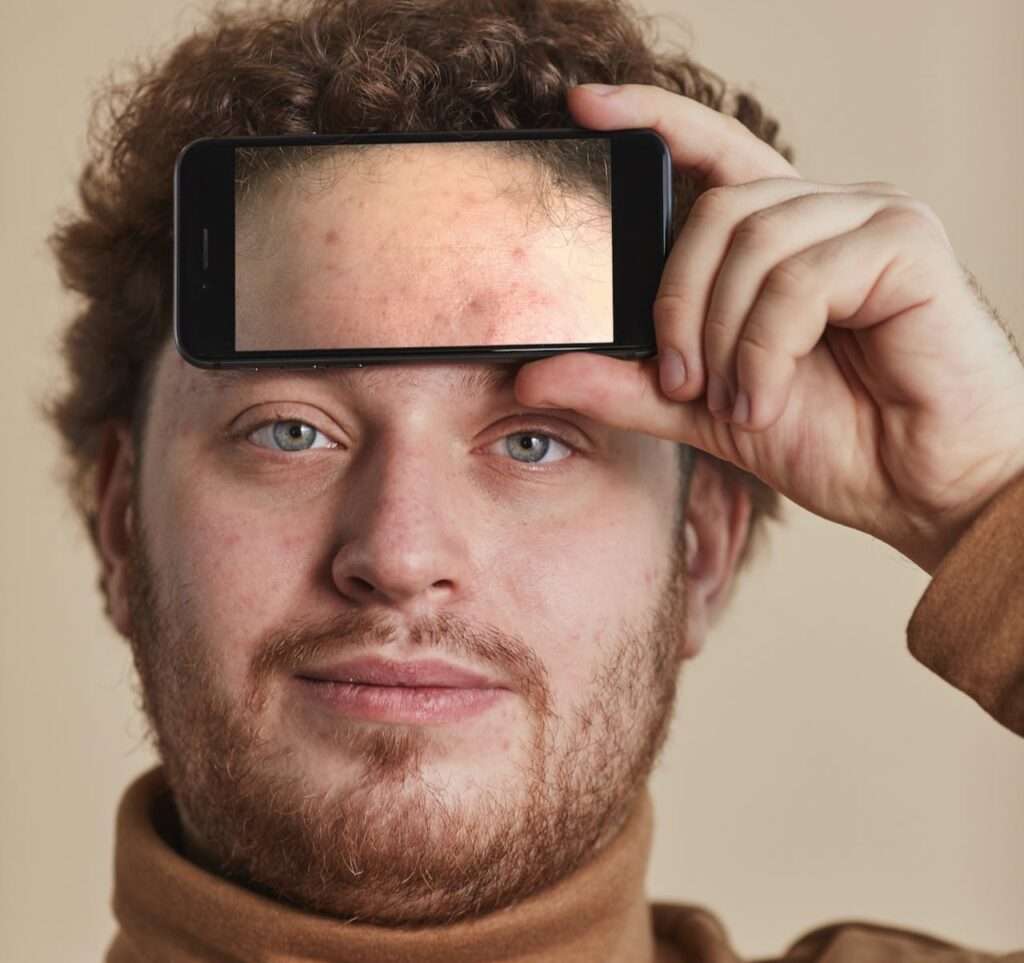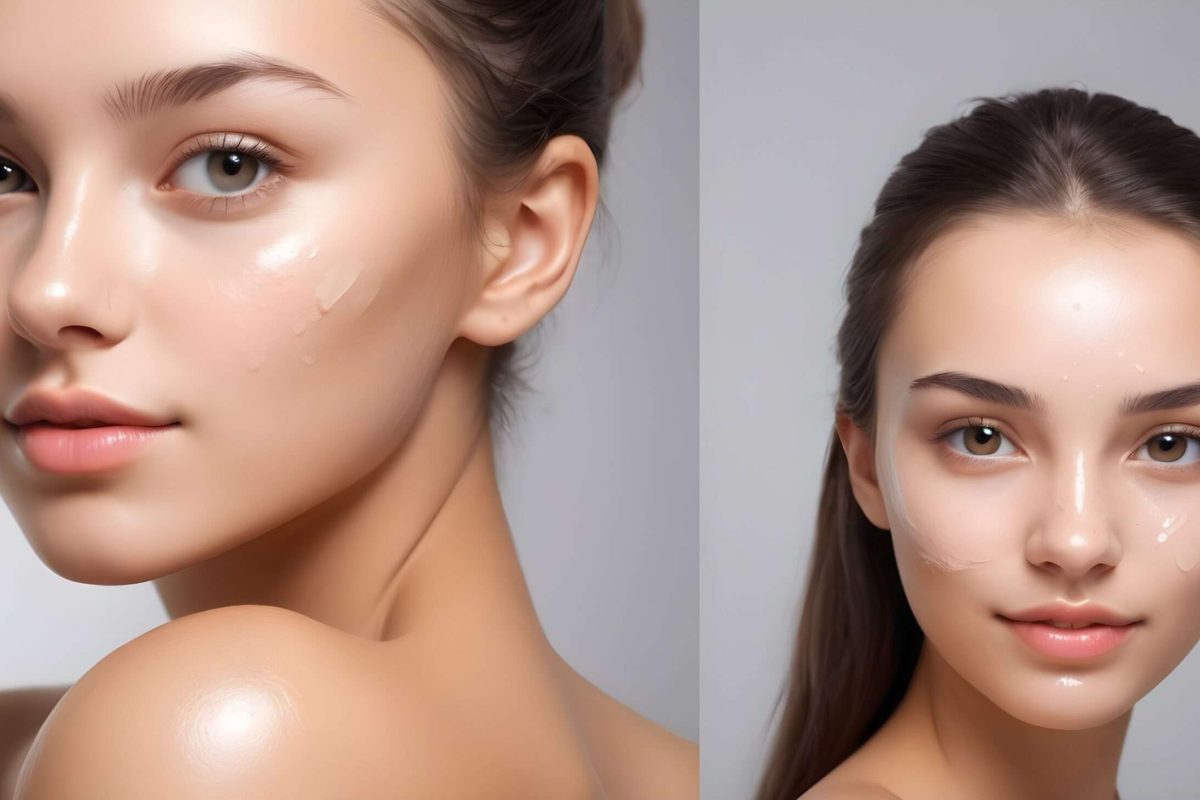
Finding the perfect skincare routine for oily skin during the summer can be a tough task. The heat and humidity can make oily skin even more challenging to manage, leading to breakouts, larger pores, and overall discomfort. But fear not! Dermatologists have found some tried-and-true methods to help you achieve that super summer glow without letting oily skin get in the way.
In this blog, we’ll explore dermatologist-approved tips to solve the issues caused by oily skin while still rocking that glowing summer look. With these strategies in your skincare routine, you can confidently live the season knowing that your routine is perfectly designed to meet the unique needs of your oily skin.
What is Oily Skin?
Oily skin is often caused by increased activity in oil glands, particularly when large sebaceous glands produce excessive sebum. Individuals with oily skin typically have visibly large pores and are prone to acne breakouts. Here are some fast facts to understand before diving into a dermatologist-approved routine for oily skin:
The distribution of oil glands varies on the skin, with more sebaceous glands on the face than the forearm.
Oil gland sizes differ even on oil-rich areas like the face, with prominent sebaceous follicles, especially on the T-zone (forehead, nose, and chin).
Cause of Oily Skin
Now, let’s explore potential reasons for excessive oil production before discussing the best skincare routine for oily skin:
- Age: Oil glands are well-developed at birth, decrease a few weeks after, and become active during puberty until the 30s. The highest sebum secretion occurs from 15 to 35 years and declines as we age.
- Gender: Studies vary on oil production, but generally, males may have higher sebum levels, especially on the forehead.
- Ethnicity: Some studies suggest variations in sebum excretion among different ethnicities, with East Asians and Caucasians possibly being less oily than African Americans.
- Genes: Genetic factors play a role, and certain genes are associated with more active oil glands, potentially leading to acne breakouts.
- Seasonal Changes: Faces tend to be oilier in warmer weather. Summer, in particular, sees increased oil production, often exacerbated by sweat mixing with the oil.
- Diet: Carbohydrate-rich foods with a high glycemic index, dairy products (excluding cheese), sugary treats, white bread, and potatoes can stimulate facial oil excretion.
Understanding these factors sets the stage for tailoring an effective skincare routine to address the unique needs of oily skin.
Skincare Routine For Oily Skin
Here are the 5 step skincare routine for oily skin that is approved by many renown dermatologist in the world.

Step 1 – Cleanse Your Face
If you’re dealing with oily skin, cleansing becomes a crucial step in your skincare routine. Ensure you thoroughly cleanse your face in the morning, in addition to your regular nightly routine. During the night, your skin sheds cells and produces oil, making morning cleansing essential.
Opt for a face wash containing alpha hydroxy acid. This ingredient aids in reducing excess oil on the face, providing a fresh start to your day. Make this cleansing step a priority to keep your oily skin in check and create a clean canvas for the rest of your skincare routine.
Step 2 – Tone Your Skin
In your effective oily skincare routine, hydration plays a crucial role. Toners are essential for refreshing and reviving the skin, especially given that a significant portion of our bodies is composed of water.
Opt for a toner with exfoliating properties, containing ingredients like lactic acid, glycolic acid, or salicylic acid. These components assist in maintaining skin balance and promoting a healthy complexion. Incorporate toning into your routine to keep your skin revitalized and ready for the next steps in your skincare routine.
Step 3 – Moisturize Your Skin
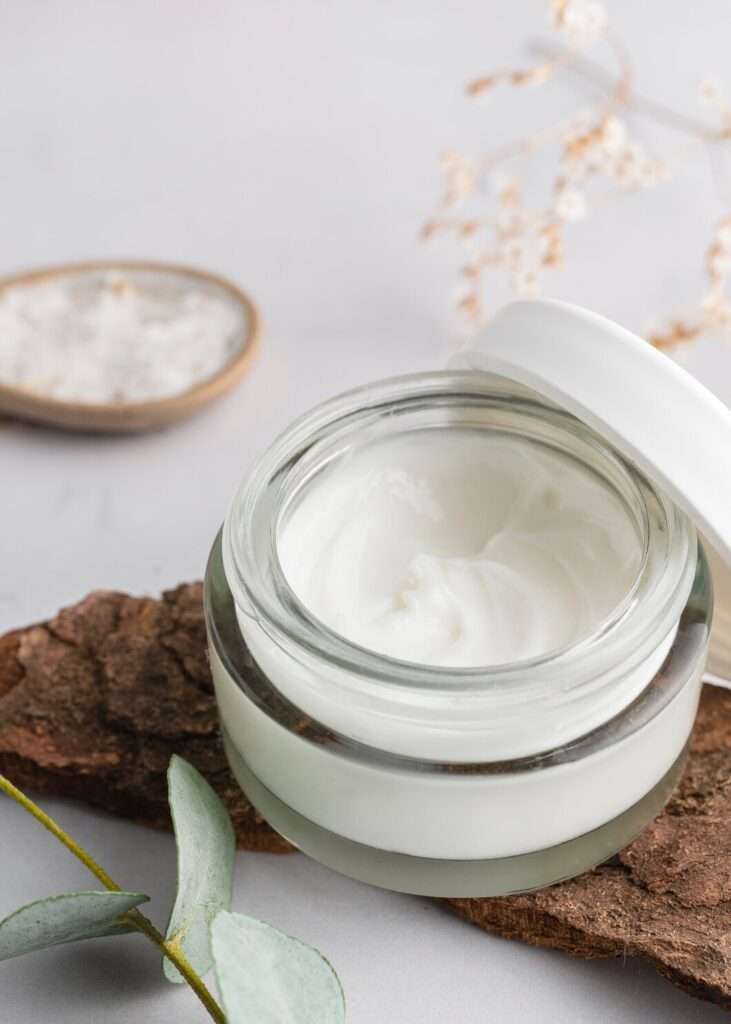
Even if you have oily skin, moisturizing remains a crucial step in your skincare routine, both in the morning and evening. Despite the misconception, moisturizing is essential for all skin types.
Applying moisturizer to damp skin is particularly beneficial, as damp skin is 10 times more permeable than dry skin, allowing for maximum moisturizer absorption right after washing.
While individuals with oily skin may not require regular use of moisturizers, it’s recommended to incorporate them more frequently during dry weather or when visiting dry climates.
For oily skin types, opt for an oil-free, lightweight, and water-based moisturizer. Ensure the moisturizer is free from harsh chemicals or fragrances and is noncomedogenic to prevent clogging pores. By selecting the right moisturizer, you can maintain hydration without worrying about your oily skin concerns.
Step 4 – Treat Your Skin
The treatment step in your skincare routine depends on your specific skin concerns. If acne is a recurring issue, consider incorporating benzoyl peroxide or sulfur during the daytime to control oil production and prevent breakouts.
For evening treatment, a retinol product is recommended to maintain clear pores and promote a radiant complexion. It’s essential to tailor this step based on your unique skin needs.
Step 5: Apply SPF
The last step is often overlooked, especially when the weather seems less sunny, but dermatologists stress the importance of year-round sun protection. Apply SPF 30 or higher every morning, regardless of the weather forecast.
Some moisturizers come with built-in SPF, eliminating the need for a separate sunscreen application. However, if your moisturizer lacks SPF, be sure to apply sunscreen separately to shield your skin from harmful UV rays.
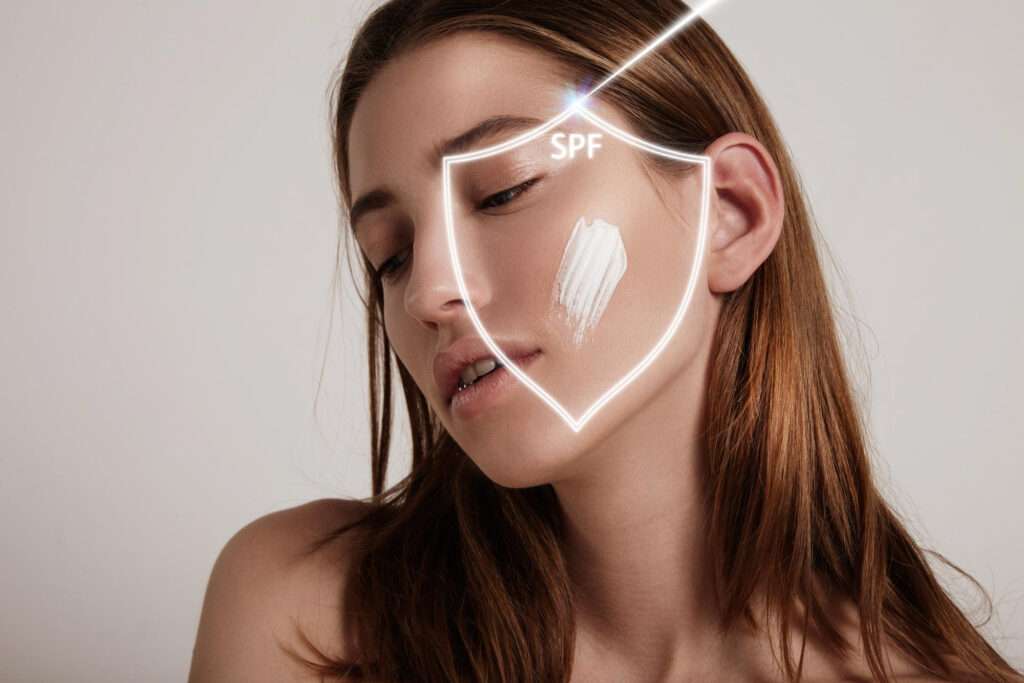
Effective Cleansing and Exfoliating Techniques
Maintaining healthy skin for people with oily skin, involves effective cleansing and exfoliation. Here’s a guide to achieving a balanced and radiant complexion through proper cleansing:
Cleansing Techniques:
- Choose the Right Cleanser: Opt for a gentle, foaming cleanser specifically designed for oily or combination skin. Ingredients like salicylic acid or glycolic acid can help control excess oil.
- Morning and Evening Cleansing: Cleanse your face twice a day – in the morning and before bed. Morning cleansing removes overnight sweat and oils, while evening cleansing eliminates makeup, pollutants, and dirt.
- Avoid Hot Water: Use lukewarm water instead of hot water when cleansing. Hot water can deplete natural oils, leading to increased oil production.
- Gentle Cleansing Technique: Apply the cleanser with gentle, circular motions. Avoid scrubbing too vigorously to prevent skin irritation and additional oil production.
Exfoliation Techniques:
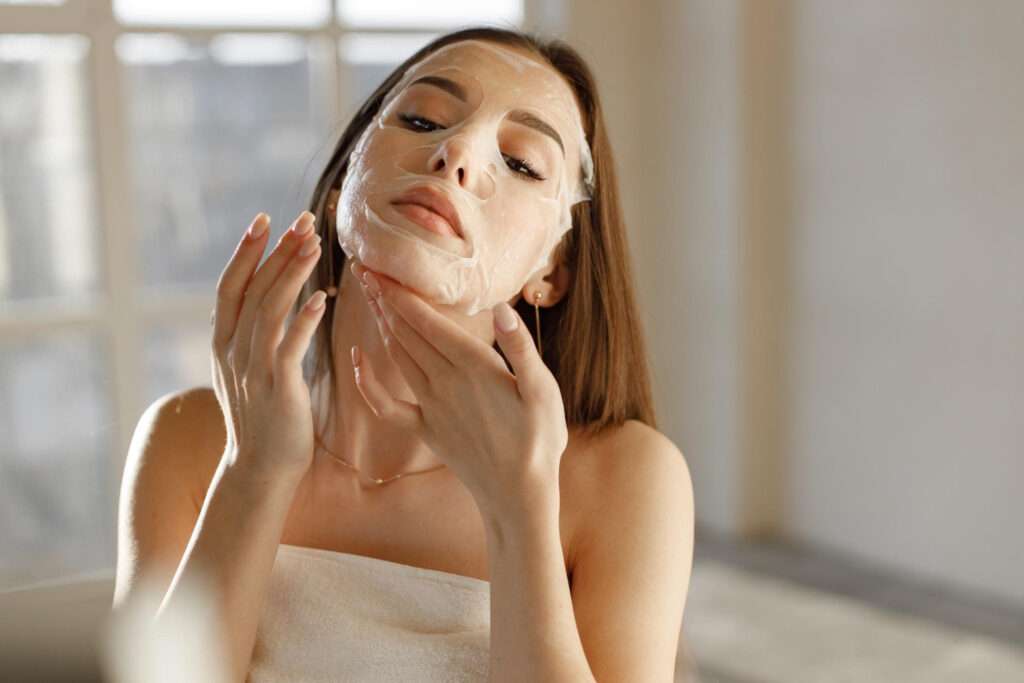
- Frequency: Exfoliate your skin one to three times per week, depending on its capacity. Over-exfoliation can increase the oily skin conditions and lead to irritation.
- Select the Correct Exfoliant: Opt for chemical exfoliants containing glycolic acid (AHA) or salicylic acid (BHA). These ingredients help control oil production, remove dead skin cells, and unclog pores.
- Avoid Abrasive Scrubs: Steer clear of physical scrubs with abrasive particles, as they can inflame the skin and cause micro-tears. Chemical exfoliants are gentler and more effective for oily skin.
- Patch Test New Products: Before incorporating a new exfoliating product into your routine, perform a patch test to check for any irritation or adverse reactions.
- Apply Sunscreen: Exfoliation can increase skin sensitivity to the sun. Always apply a broad-spectrum sunscreen with SPF 30 or higher during the day, especially after exfoliating. This helps protect your skin from harmful UV rays and prevents potential damage.
Common Mistakes to Avoid
To maintain healthy skin, experts advise steering clear of the following habits:
1. Forgetting to Blot Away Excess Oil:
If your skin tends to shine throughout the day, the American Academy of Dermatology (AAD) suggests using blotting papers to control excess oil. Gently press the paper against your skin for a few seconds to absorb most of the oil. Repeat as needed throughout the day.
2. Skipping Skin Cleansing After Exercise:
Alongside your morning and evening routines, the AAD recommends washing your face after exercising, especially if you don’t plan to shower immediately. This helps remove sweat, oil, and dirt that may accumulate during your workout. It doesn’t have to be a complex process – simply wash your face with your regular cleanser and apply a light layer of moisturizer. The sooner you can do this after exercise, the better.
3. Choosing the Wrong Products
When selecting skincare products, Adarsh Vijay Mudgil, a dermatologist and founder of Mudgil Dermatology in New York City, advises making careful choices.
“Avoid products containing alcohol, as they can paradoxically increase oil secretion,” he cautions. Additionally, steer clear of thick or greasy products like cocoa butter, shea butter, and Vaseline.
4. Skipping Sunscreen
When spending time outdoors, it’s crucial to apply sunscreen with an SPF of at least 30. Mudgil recommends opting for sunscreen containing titanium dioxide or zinc oxide, as these ingredients can help prevent acne breakouts.
To simplify your routine, consider using a daily moisturizer with built-in sunscreen for ongoing protection.
Choosing Best Skincare Products
Choosing effective skincare products for sebum control is crucial in managing oily skin. Go for products that balance oil production without causing irritation or excessive dryness. Consider the following ingredients and product categories:
- Cleanser: Choose a gentle foaming or gel-based cleanser with salicylic acid or glycolic acid. These ingredients exfoliate and unclog pores, reducing excess oil. Check if the formulation is non-comedogenic.
- Toner: Choose an alcohol-free toner featuring witch hazel or niacinamide. These ingredients helps to fill pores and control oil production. Avoid toners with high alcohol content, as they can cut natural oils and lead to rebound oiliness.
- Moisturiser: Use a lightweight, oil-free, or gel-based moisturiser, even for oily skin. Look for ingredients like hyaluronic acid, glycerin, or niacinamide that provide hydration without clogging pores. This helps maintain a balanced and healthy skin.
- Serum: Consider using a niacinamide (Vitamin B3) serum to control sebum. It helps regulate oil, reduces inflammation, and improves skin texture.
- Exfoliants: Choose chemical exfoliants with salicylic acid (BHA) or glycolic acid (AHA) to unclog pores and regulate oil. Start with a low concentration and increase as needed.
- Clay Masks: Use clay masks weekly to absorb excess oil and minimize pores. Look for masks with kaolin, bentonite, or charcoal for oily skin.
- Sunscreen: Apply SPF 30 sunscreen daily to protect your skin from UV rays. Opt for oil-free or gel-based options to avoid adding shine.
Practical Overview of Skincare Routine
Morning Routine:
- Cleanse with salicylic acid.
- Use alcohol-free toner with witch hazel or niacinamide.
- Apply niacinamide serum for sebum control.
- Hydrate with an oil-free moisturizer.
- Protect with SPF 30 sunscreen.
Midday Refresh:
- Combat oiliness with blotting papers.
- Rejuvenate with a hydrating mist.
- Evening Routine:
- Cleanse with the same gentle cleanser.
- Exfoliate with salicylic or glycolic acid.
- Apply dermatologist-recommended treatments.
- Moisturize with a light, oil-free moisturizer.
Weekly Treatments:
- Use a clay mask for oil absorption.
- Hydrate with a weekly moisturizing mask.
Common Misconceptions About Oily Skin:
Myth: Oily Skin Doesn’t Need Moisturizer.
Clarification: All skin types, including oily skin, benefit from mild, oil-free moisturizers. They help maintain the skin’s natural barrier and can control oil production.
Myth: Using Sunscreen Exacerbates Oily Skin.
Clarification: Sunscreen is crucial for all skin types, including oily skin. Opt for non-comedogenic, oil-free sunscreens to protect your skin without increasing oiliness.
Myth: Oily Skin Requires Harsh Cleansing.
Clarification: Aggressive cleansing removes natural oils, prompting the skin to produce more. A mild, sulfate-free cleanser maintains a balanced environment.
Myth: Oily Skin Doesn’t Age.
Clarification: Oily skin ages too. While excess oil may help prevent wrinkles, genetics, sun exposure, and lifestyle choices are significant factors. Sunscreen and a comprehensive skincare regimen are crucial.
Myth: Oily Skin Does Not Need Sunscreen.
Clarification: Sun protection is vital for oily skin to prevent sunburn, premature aging, and skin cancer. Opt for oil-free sunscreen for comfortable protection.
Concerns About Oily Skin:
Concern: Acne Is Caused by Oily Skin.
Clarification: Oily skin may contribute to acne, but it’s not the sole cause. Factors like hormones, skincare practices, and genetics also play a role. Proper cleansing and non-comedogenic products can help manage acne linked to oily skin.
Concern: Oily Skin Doesn’t Need Moisture in Humid Climates.
Clarification: Moisture is essential regardless of humidity. A mild, oil-free moisturizer keeps the skin hydrated and balanced even in humid conditions.
Concern: Oily Skin Can Be “Dried Out” to Reduce Oiliness.
Clarification: Over-drying leads to rebound oiliness. A balanced approach with gentle cleansing, hydration, and targeted products is more effective.
Concern: Oily Skin Cannot Be Controlled.
Clarification: While genetic, oily skin can be effectively managed with a proper skincare routine. Consistent cleansing, suitable products, and professional advice help control excess oil for a healthy complexion.
Conclusion
For a happy, glowing summer complexion, especially if you have oily skin, stick to a balanced and personalized skincare routine.
Clear up common myths, address worries, and follow these simple tips: stay hydrated, never skip sunscreen, be gentle when cleansing, choose non-clogging products, personalize your skincare, be consistent, tackle concerns early, watch your sun exposure, keep yourself hydrated, and adapt to the weather.
Follow these tips, understand your skin, and enjoy your radiant summer glow. Remember, finding the right routine is a journey—enjoy it and embrace the glow!
FAQs:
1. What is Dermatologist-Approved 5-Step Skincare Routine for Oily Skin?
- Cleansing: Use a gentle, foaming cleanser with salicylic acid.
- Toning: Opt for an alcohol-free toner with witch hazel or niacinamide.
- Moisturizing: Choose an oil-free, lightweight moisturizer.
- Treating: Incorporate treatments like benzoyl peroxide or sulfur for acne.
- Sun Protection: Apply a broad-spectrum SPF 30 or higher sunscreen daily.
2. Do I need moisturizer if I have oily skin?
Yes, even oily skin benefits from moisture. It helps balance oil production and keeps your skin healthy.
3. Does sunscreen make oily skin worse?
No, sunscreen is crucial for all skin types, including oily. Choose oil-free options for sun protection without making your skin oilier.
4. Is it true that oily skin doesn’t age?
No, oily skin ages too. While it might help prevent wrinkles, factors like genetics and sun exposure play a bigger role. Use sunscreen and a good skincare routine.
